Short Kings: Ranking the greatest 6-foot-and-under players in NBA history

Although being tall is obviously quite important for NBA players, some guys have enjoyed long, successful careers despite being short (at least by professional basketball player standards).
Today, we are going to rank the Top 20 greatest short players in NBA history, with short being defined as their listed height being six feet tall or below.
Let’s jump right into the action.
Jose Juan Barea (5-foot-10)

Dick McGuire (6-foot)

Top accolades: One All-NBA 2nd Team, seven All-Stars
Average stats: 8.0 ppg, 5.7 apg, 4.2 rpg, 38.9 FG%
NBA rank: 109th in assists, 671st in rebounds, 772nd in points
A seven-time All-Star in the 1950s, New York Knicks and Detroit Pistons legend Dick McGuire was one of the best playmakers in the league during his heyday, leading the NBA in total assists as a rookie for New York and totaling 4,205 dimes for his career, almost a Top 100 mark in NBA history to this day. McGuire, a Naismith Basketball Hall of Famer, never won a championship but reached the NBA Finals three times. He got all the way to Game 7 of the championship series twice, falling just short both times, in 1951 to the Rocester Royals and in 1952 to the Minneapolis Lakers.
Muggsy Bogues (5-foot-3)

Michael Adams (5-foot-10)

Top accolades: One All-Star
Average stats: 14.7 ppg, 2.9 rpg, 6.4 apg, 1.7 spg, 41.5 FG%
NBA rank: 108th in assists, 142nd in steals, 420th in points
A one-time All-Star, Michael Adams played 11 seasons in the NBA, peaking in 1990-91 when he averaged 26.5 points, 3.9 rebounds, 10.5 assists and 2.2 steals over 66 games with the Denver Nuggets, extremely impressive numbers albeit on a team that went 20-62. Adams would receive neither All-Star or All-NBA honors that year, instead receiving the lone All-Star selection of his career the following season as a member of the then-Washington Bullets. Adams was a solid player in the NBA, though his most eye-catching statistical career years came when he was the best player on very bad teams.
Jameer Nelson (6-foot)

Top accolades: One All-Star, All-Rookie 2nd Team
Average stats: 11.3 ppg, 5.1 apg, 3.0 rpg, 0.9 spg, 43.6 FG%
NBA rank: 89th in assists, 318th in steals, 400th in points
Despite his small stature and just average athleticism, at least as far as pure jumping ability, Jameer Nelson used quickness, strength and great instincts as a floor general to play 14 seasons in the NBA, 10 of them with the Orlando Magic. Nelson made one All-Star appearance in his career, in 2008-09 when he put up 16.7 points and 5.4 assists per contest for a Magic team that won 59 regular-season games and got all the way to the NBA Finals. Nelson unfortunately missed most of the second half of that season and the start of the playoffs before returning for the Finals, where he was far from his most effective self. A healthy Nelson might have given us a more interesting championship series that year than the four-game-to-one domination by the Los Angeles Lakers we actually got.
Mookie Blaylock (6-foot)

Guy Rodgers (6-foot)

Top accolades: Six All-Stars
Average stats: 11.7 ppg, 4.3 rpg, 7.8 apg, 37.8 FG%
NBA rank: 22nd in assists, 371st in points, 439th in rebounds
A Hall-of-Famer, Guy Rodgers spent 12 seasons in the NBA, mostly with the Philadelphia and San Francisco Warriors but also with the Chicago Bulls and Milwaukee Bucks. In that period, he led the league in nightly assists twice and was named an All-Star four separate times. Teaming up with all-time great Wilt Chamberlain, Rodgers helped lead the Warriors to the 1964 NBA Finals where they fell to the Boston Celtics four games to one. Fun fact: Rodgers also played with a young Kareem Abdul-Jabbar during his stint in Milwaukee, one of the few players who can say they have had the honor of playing with both Chamberlain and Abdul-Jabbar, arguably the two greatest centers of all time.
Kenny Anderson (6-foot)
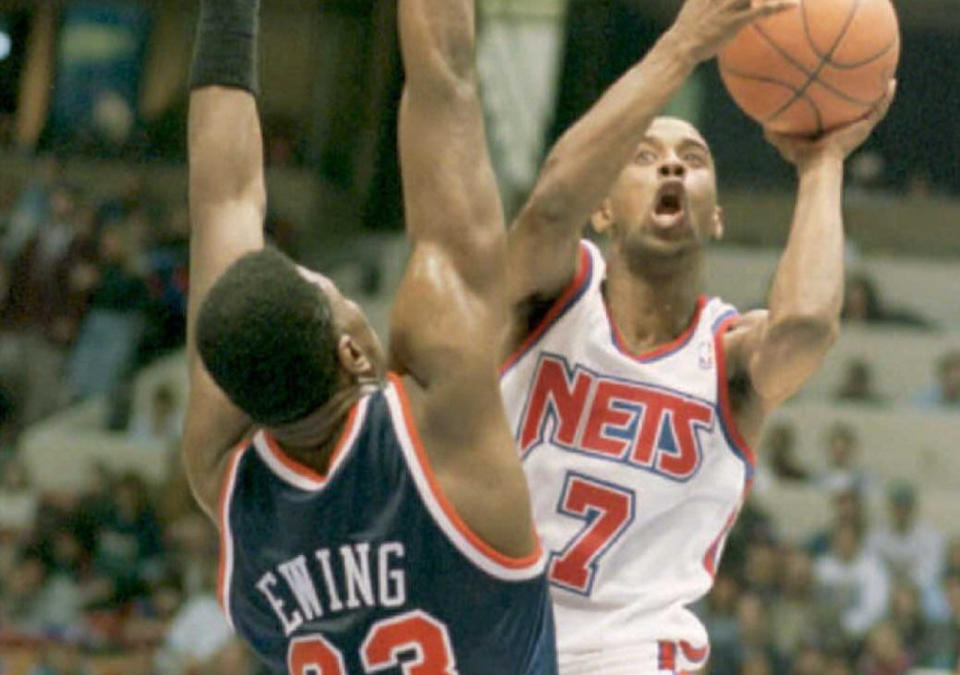
Bobby Wanzer (6-foot)

Damon Stoudamire (5-foot-10)

Top accolades: Rookie of the Year award
Average stats: 13.4 ppg, 3.5 rpg, 6.1 apg, 1.1 spg, 40.6 FG%
NBA rank: 58th in assists, 200th in steals, 295th in points
The Rookie of the Year in 1995-96, Damon Stoudamire is most remembered for his time with the Portland Trail Blazers in the era when they were not-so-fondly referred to as the “Jail Blazers” due to the team’s various off-the-court issues. Stoudamire was a part of those problems, as he was arrested on marijuana-related charges three times and eventually suspended from the team for three months in 2003.
Things got so bad, Blazers president Steve Patterson reportedly wanted to void his contract but was legally unable to do so. Stoudamire eventually went to rehab and allowed a local beat reporter to come in and test his urine for marijuana during the 2003-04 season at a random time of the reporter’s choosing in order to prove his sobriety. No, seriously. (Stoudamire’s test would return clean.)
Anyway, on the court, Stoudamire was a solid player, a lead guard who could score and create in spurts. He was the starting point guard on back-to-back Blazers teams that got to the Western Conference Finals in ’99 and ’00, an impressive feat.
Terrell Brandon (5-foot-11)
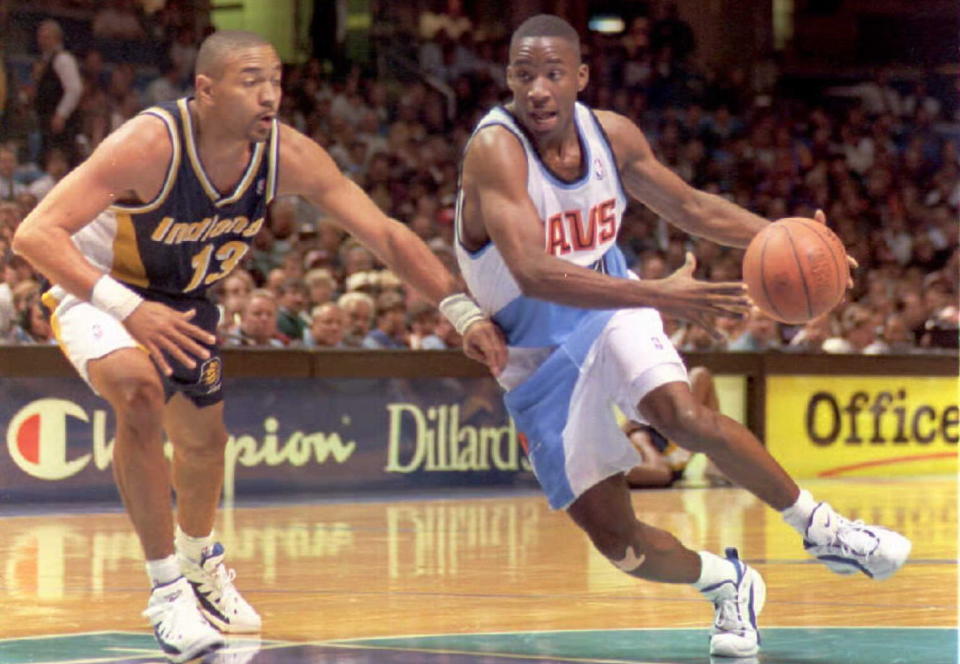
Calvin Murphy (5-foot-9)
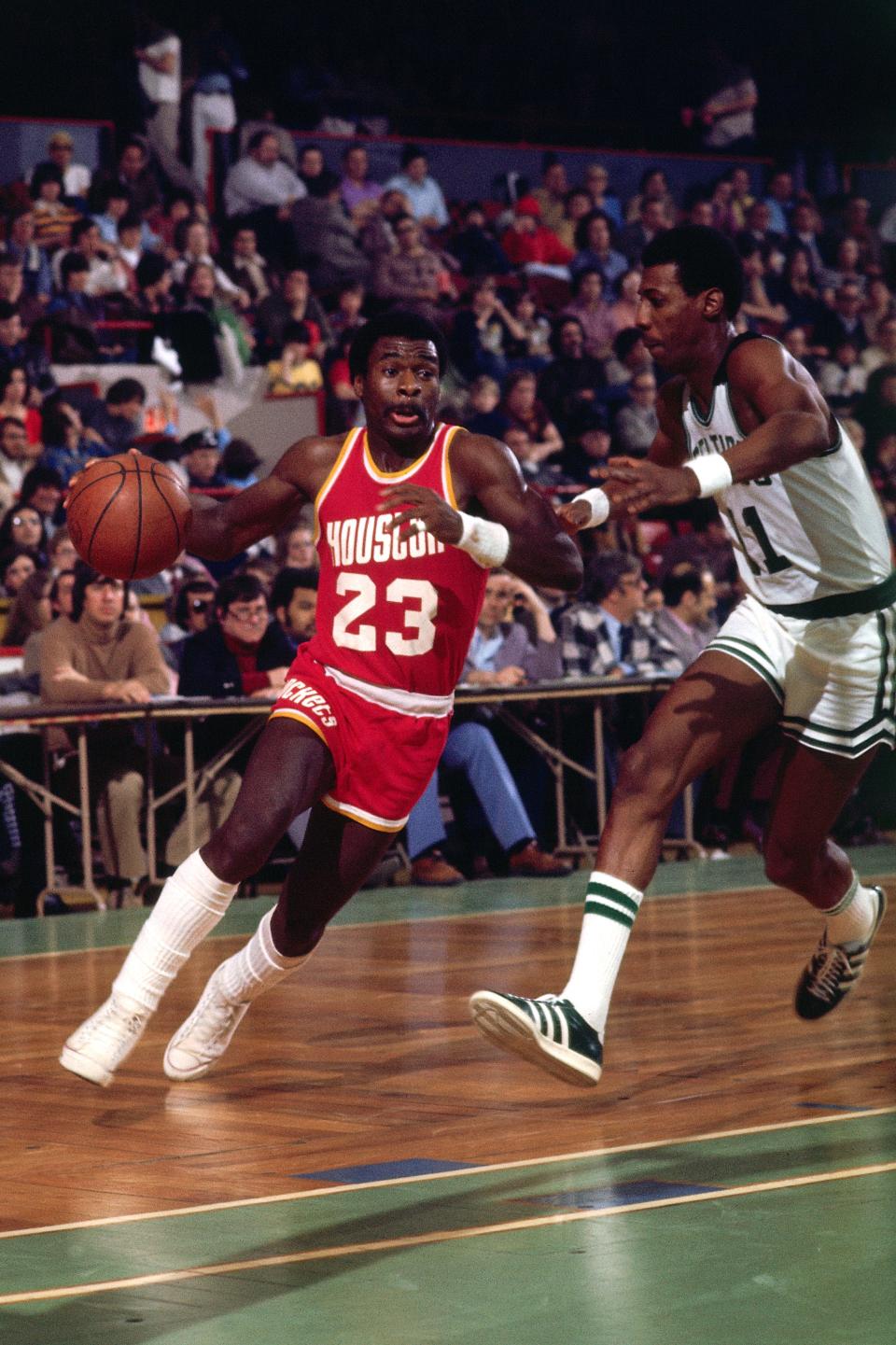
Top accolades: One All-Star, All-Rookie 1st Team
Average stats: 17.9 ppg, 2.1 rpg, 4.4 apg, 1.5 spg, 48.2 FG%
NBA rank: 79th in points, 94th in assists, 105th in steals
One of the few players on this list who might actually be considered somewhat short for an average person, the 5-foot-9 Calvin Murphy was a fantastic scorer for his size, averaging nearly 18 points for his career. Murphy was a combo guard who could get buckets, averaging at least 20 points five times in his career, topping out at 25.6 points per game in 1977-78 as a member of the Houston Rockets. Murphy led the league in free throw percentage twice and to this day is considered one of the greatest Rockets players ever, spending his entire career with the franchise dating back to when they were the San Diego Rockets. Murphy ranks third in Rockets history in points scored, trailing only a couple of guys named Hakeem Olajuwon and James Harden. Some solid company there.
Slater Martin (5-foot-10)

Isaiah Thomas (5-foot-9)
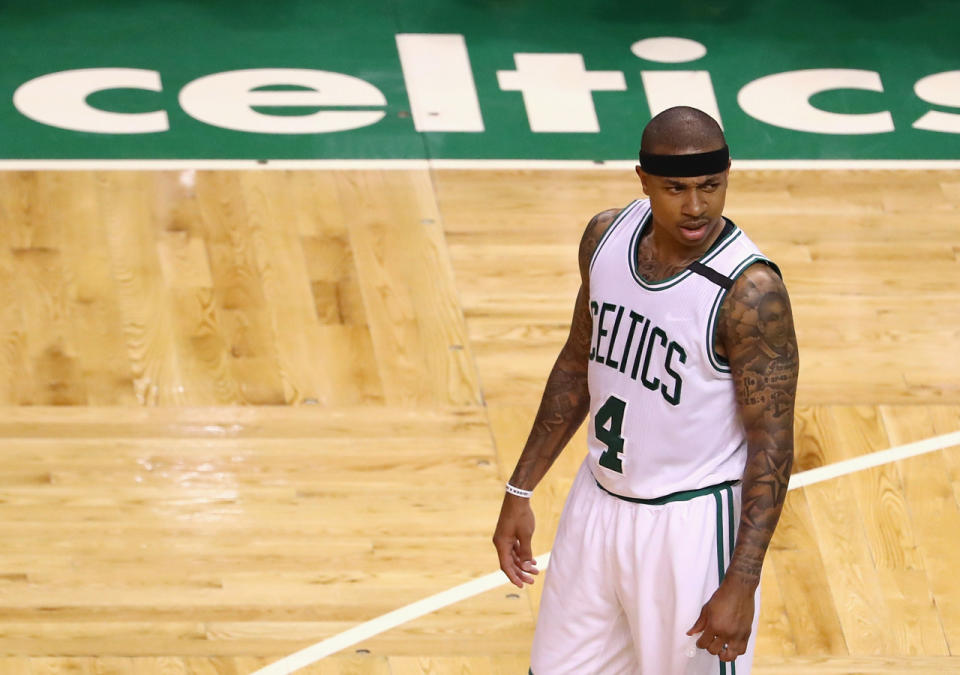
Top accolades: One All-NBA 2nd Team selection, two All-Stars
Average stats: 17.7 ppg, 2.4 rpg, 4.8 apg, 0.9 spg, 43.4 FG%
NBA rank: 295th in assists, 415th in points, 657th in steals
The electric Isaiah Thomas hit an almost unfathomable peak, peaking in 2016-17 as a 2nd Team All-NBAer after averaging 28.9 points and 5.9 assists on 46.3 percent shooting while leading Boston to a 53-29 campaign. Thomas was so good that season that he finished fifth in MVP voting, just ahead of two-time league MVP Stephen Curry and right behind LeBron James. Fun fact: Thomas is the only player under six-feet tall in NBA history to finish Top 5 in MVP voting in any given year. Unfortunately, injuries would soon take their toll on the diminutive Thomas and he would only play 109 regular-season games after his explosive 2016-17.
Kemba Walker (6-foot)

Top accolades: One All-NBA 3rd Team selection, four All-Stars
Average stats: 19.3 ppg, 3.8 rpg, 5.3 apg, 1.2 spg, 41.8 FG%
NBA rank: 127th in assists, 167th in points, 222nd in steals
Four-time All-Star Kemba Walker was a great point guard in his prime, more of a score-first option with a nasty crossover and the ability to hit jumpers off the dribble and via step-backs. His quickness made him quite difficult to defend, as did his ability to change directions at a moment’s notice. Unfortunately for Walker, it was during one of those All-Star appearances that his career would change, as in the 2020 All-Star Game, the 2019 3rd Team All-NBAer hurt his knee, an injury that he never returned to elite form from. What makes the injury even worse in hindsight is that it happened not only in Walker’s prime but when he had finally joined a team with championship aspirations after years of toiling away playing for awful-to-mediocre teams in Charlotte.
Mark Price (6-foot)
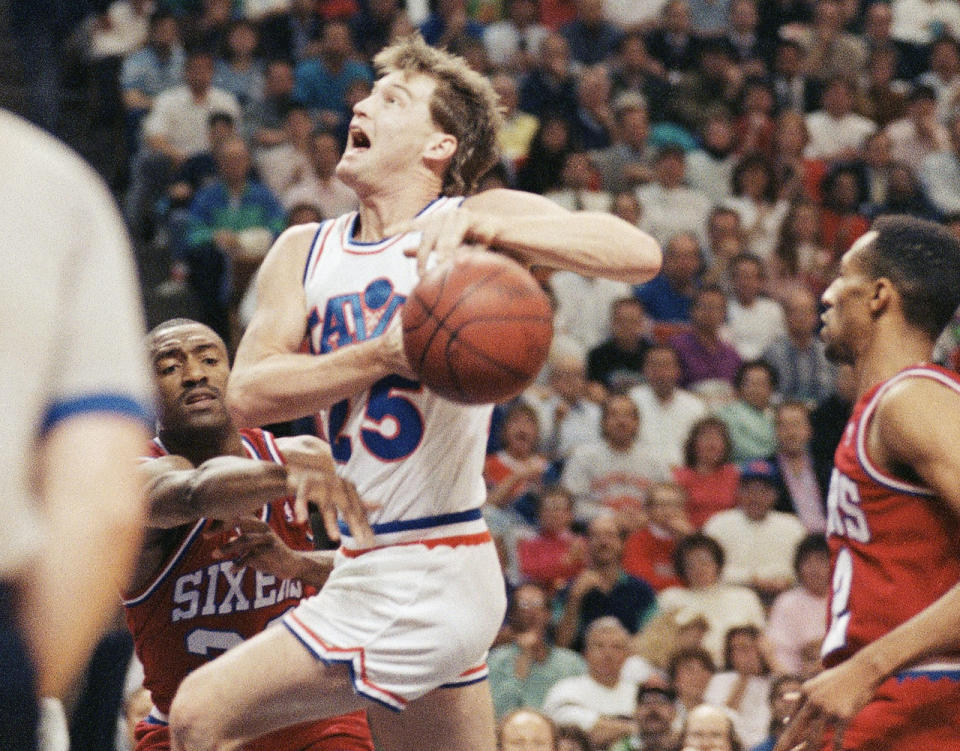
Top accolades: Four All-NBA selections, four All-Stars
Average stats: 15.2 ppg, 2.6 rpg, 6.7 apg, 1.2 spg, 47.2 FG%
NBA rank: 75th in assists, 262nd in steals, 331st in points
One of the best point guards of the late ’80s and early ’90s, Cavaliers legend Mark Price was a four-time All-Star and got All-NBA honors four times, three times as a 3rd Teamer but once as a 1st Teamer, an extremely impressive feat in 1992-93. Just for reference, the other guards to receive All-NBA honors that year along with Price were Michael Jordan (1st Team), Stockton and Joe Dumars (2nd Team) and Tim Hardaway and Drazen Petrovic (3rd Team). Pretty solid company there for Price.
Now, Price’s career wasn’t a particularly long one – he played 12 NBA seasons but missed several games due to injury – but he led the league in free throw percentage three times, averaged eight-plus assists four times and was a career 40.2 percent three-point shooter. He also helped lead Cleveland to the Eastern Conference Finals in 1991-92 where the team impressively took two games from Jordan and the Bulls en route to a four-game-to-two series loss.
Kyle Lowry (6-foot)

Top accolades: One NBA title, one All-NBA 3rd Team selection, six All-Stars, one Olympic gold medal
Average stats: 14.5 ppg, 4.4 rpg, 6.2 apg, 1.3 spg, 42.4 FG%
NBA rank: 23rd in assists, 58th in steals, 122nd in points
As has been made clear by the names on this ranking, it’s hard enough for smaller guys to find a place in the NBA while competing in elite physical form. So for Kyle Lowry to have had the career he’s had (just look at his place in the all-time statistical rankings) while not ever really being in elite shape tells you a lot about his basketball IQ and his competitive fire.
Now, there were times in the past when his playoff performances left something to be desired but Lowry did redeem himself by winning a championship with the Toronto Raptors in 2018-19. What’s more, since then, Lowry has made two more deep playoff runs, getting to Game 7 of the Eastern Conference Finals in 2021-22 and to the Finals in 2022-23, both times with Miami. All in all, Lowry’s longevity has made him one of the best short players in league history.
Tim Hardaway (6-foot)
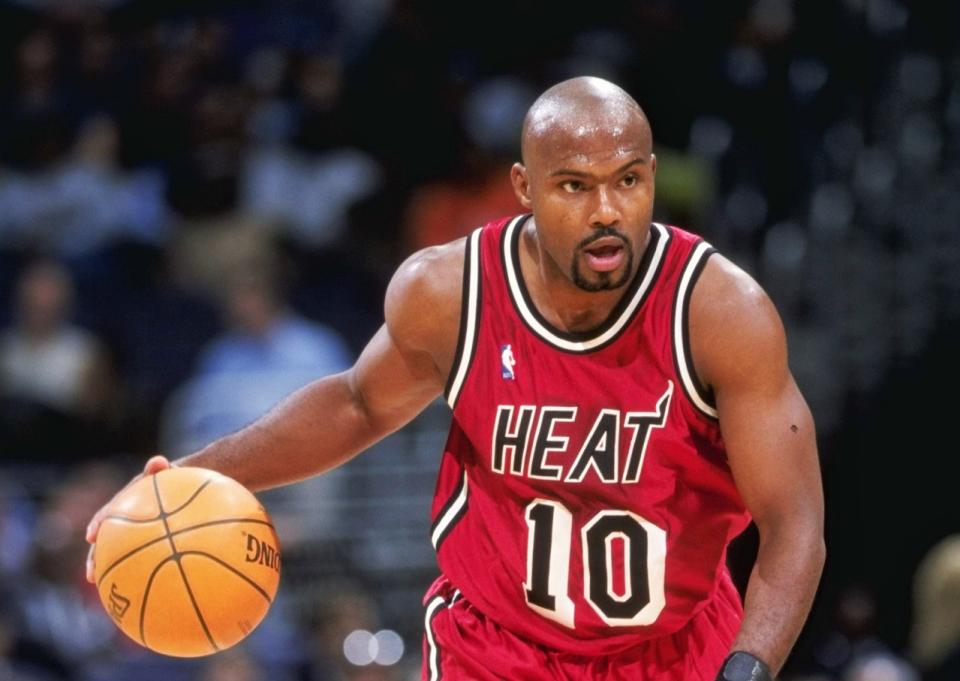
Top accolades: Five All-NBA selections, five All-Stars, one Olympic gold medal
Average stats: 17.7 ppg, 3.3 rpg, 8.2 apg, 1.6 spg, 43.1 FG%
NBA rank: 19th in assists, 59th in steals, 141st in points
The UTEP 2-Step Tim Hardaway, father of current Mavericks guard Tim Hardaway Jr., entered the Hall of Fame with the class of 2022, capping off one of the best careers in NBA history by a short player. Hardaway started his time in the NBA with a fun Golden State Warriors team, fondly remembered as Run TMC and featuring Hardaway, Chris Mullen and Mitch Richmond as the team’s run-and-gun Big 3. He then overcame a devastating knee injury that cost him the entire 1993-94 season to make two more All-Star appearances after that, both with the Miami Heat. Hardaway had an elite crossover, loved to shoot threes before it became popular and was a very flashy playmaker.
Allen Iverson (6-foot)
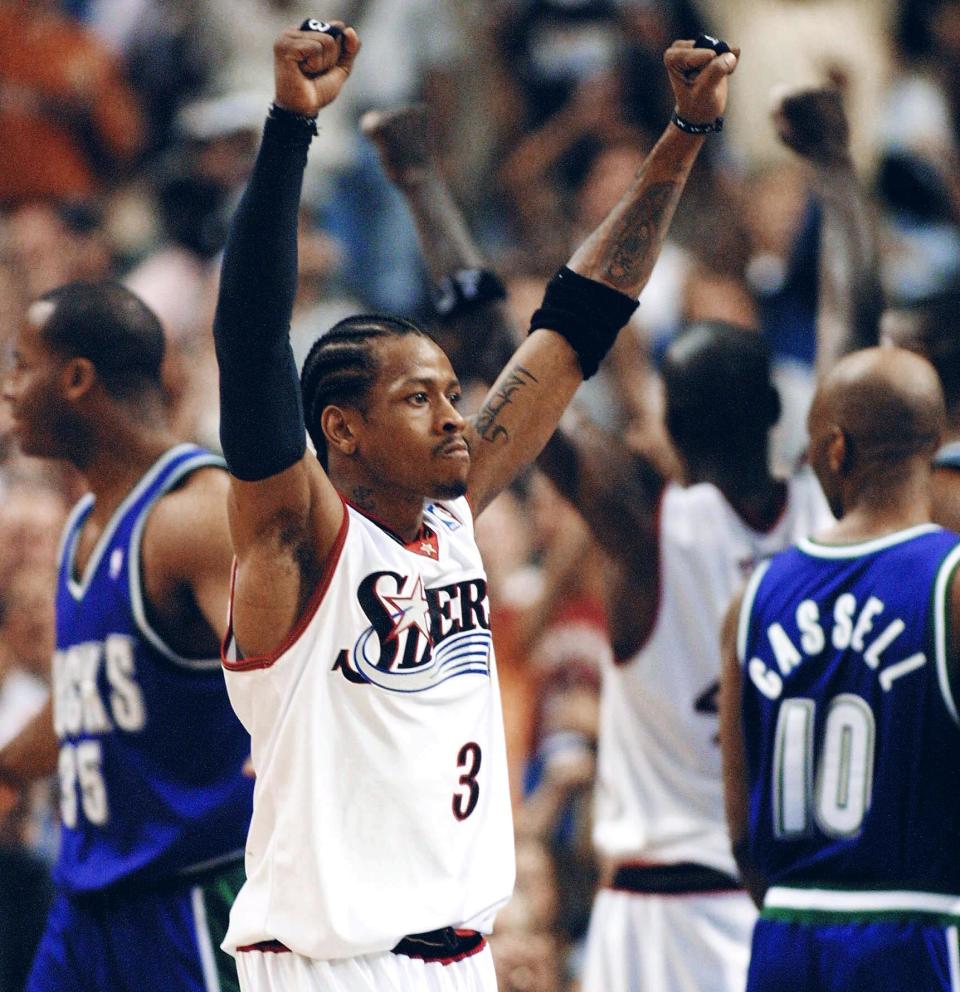
Top accolades: One MVP, seven All-NBA selections, 11 All-Stars, one Olympic bronze medal
Average stats: 26.7 ppg, 3.7 rpg, 6.2 apg, 2.2 spg, 42.5 FG%
NBA rank: 14th in steals, 28th in points, 52nd in assists
A cultural icon for his exploits on and off the court, Allen Iverson has to be considered one of the best athletes in NBA history not just for his elite quickness and speed but also his overall strength, as he thrived in an era full of enforcers and hard fouls despite being one of the smaller players out there most nights. Iverson was a menace getting to the basket and no matter how hard he got knocked down or how often it happened in any given game, he was still always ready for his next rim attack.
Iverson once famously led a team devoid of offensive talent to the Finals, back in 2000-01, and even took Game 1 of the series on the road against the iconic Shaq-and-Kobe Lakers that year. Iverson didn’t enjoy much playoff success outside of that, something that doesn’t get brought up often when discussing his legacy. Iverson also wasn’t the most efficient, shooting a lot of long twos and hitting just 31.3 percent of his career threes.
Regardless, he became a sports icon, and he was elite enough as a player to take home league MVP honors in 2000-01, becoming the shortest (and lightest) player to ever win MVP in NBA history.
Chris Paul (6-foot)
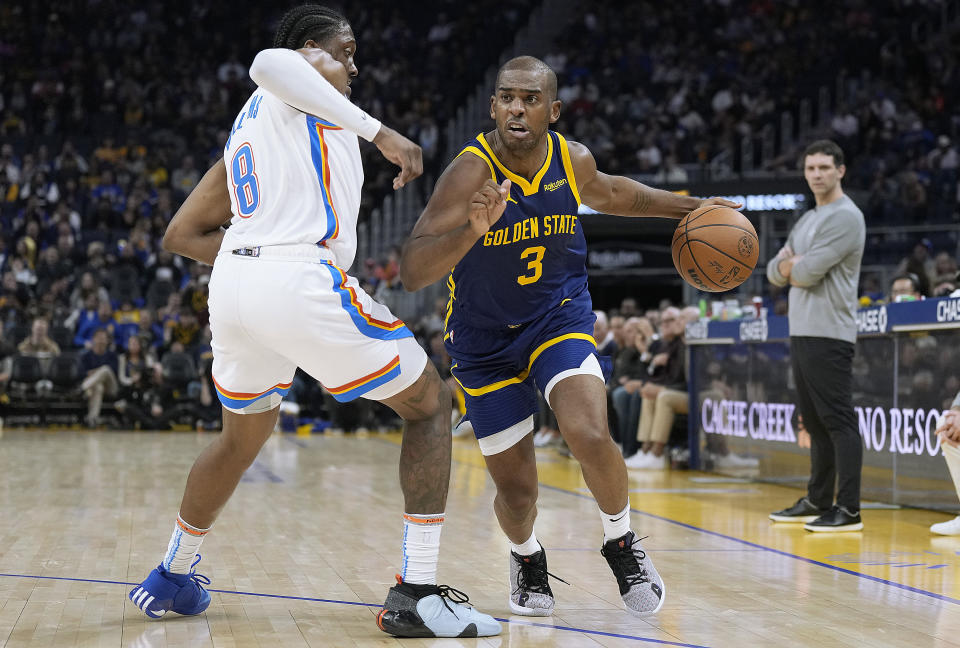
Top accolades: 11 All-NBA selections, 12 All-Stars, seven All-Defensive 1st Team selections, two Olympic gold medals
Average stats: 17.8 ppg, 4.5 rpg, 9.4 apg, 2.1 spg, 47.1 FG%
NBA rank: 3rd in assists and steals, 37th in points
Future Hall-of-Famer Chris Paul was an impact player from Day 1 in the NBA, arriving to the NBA a high-level floor general, which is extremely rare in the Association, especially for a diminutive player like Paul. Paul won Rookie of the Year in 2005-06 and was an All-Star and 1st Team All-NBAer by his third season, crazy feats to look back at in hindsight.
By now, everyone knows Paul’s game quite well. He’s got a killer mid-range game and is a fantastic playmaker. Paul also boasts a lot of longevity in a sport that’s not kind to small guys.
Today, Paul, at six-feet-tall, remains in the NBA and is currently the second-oldest player (38) in the league, something we’re pretty sure has never happened before for a player his size. Paul came close to winning MVP in 2007-08, the year Kobe Bryant won it. (For the record, CP3 beat Bryant in just about every advanced metric that season. Paul finished second league-wide in BPM and VORP that season but first in WS/48).
Paul has also come close to winning the only other major accolade he’s missing, a championship, particularly in 2020-21 when he got all the way to the Finals as a member of the Phoneix Suns and even held a 2-0 series lead over the Milwaukee Bucks before falling in six games.
Still, just looking at his career accolades and all-time statistical rankings, there’s no doubt Paul is the Short King of the NBA.
[listicle id=2323002]
[listicle id=2391440]
[listicle id=1768719]

